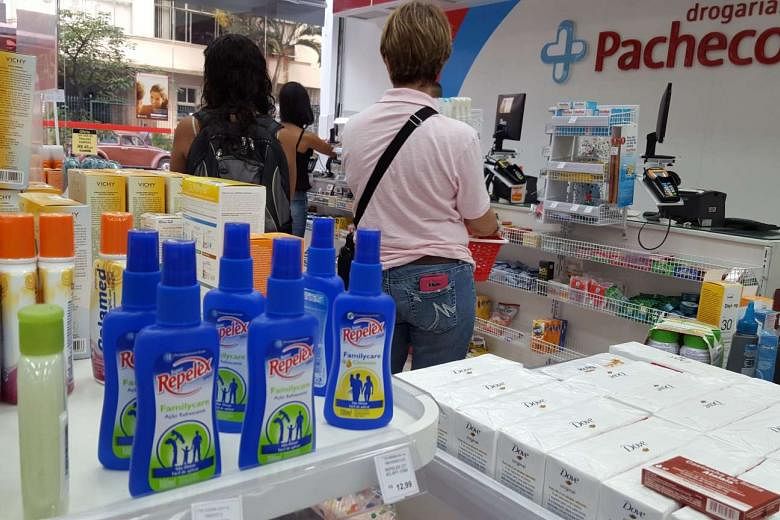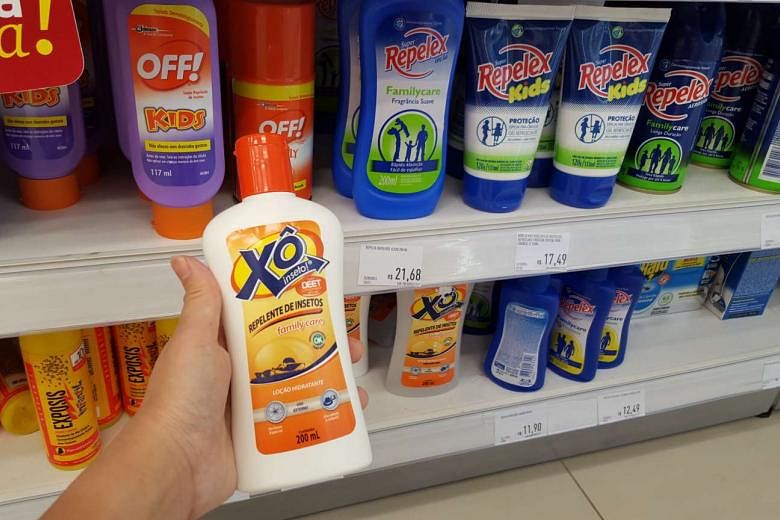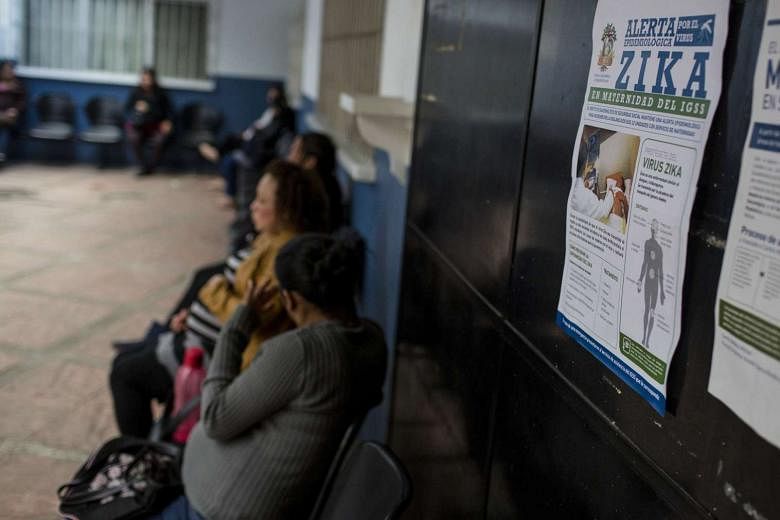RIO DE JANEIRO - A week since returning to Rio de Janeiro from Singapore, I have had several mosquito bites on both my legs.
They are small and red, but otherwise hardly bother me.
Yet I cannot help but feel jittery each time I spot a new bite mark, despite the precautions I have taken.
I make it a point to wear long pants whenever I go outdoors - even to the wet market- obsessively keep my doors and windows closed and spray insect repellent on myself several times a day.
Brazil is, after all, the hardest hit country in the ongoing Zika virus outbreak, with 1.5 million cases of infection.
On Monday (Feb 1), the World Health Organisation (WHO) declared the Zika virus to be an international public health emergency. It has also launched a global Zika response unit.
Fortunately, I am not pregnant, for the greatest concern over the virus is that it is linked to a condition which causes a baby to be born with an abnormally small head, called microcephaly.
Reports have said that 90 per cent of children born with the condition will have retarded mental and physical development.
Since October, Brazil has reported 3,670 suspected cases of microcephaly, of which 404 have been confirmed- up from 147 in 2014.
So imagine my surprise when I spotted two pregnant women in their short spaghetti-strapped dresses one morning.
I mentally reproached them for not wearing long, covered clothing to protect themselves from mosquito bites.
The next day, I had some insights after chatting with 31-year-old Erica de Souza Alves outside a private clinic. She is 36 weeks pregnant with her first child.
In a shoulder-baring, floral dress that exposed her limbs, she told me it was more comfortable to dress that way in the sweltering summer heat in Brazil.
The bank teller had also religiously sprayed insect repellent on herself, be it indoors or outdoors.
Like her, most Brazilians dress for comfort, going around in their sleeveless tops, shorts and slippers (mostly Havaianas slippers).
Zika virus or not, it would seem life has not changed one bit for the locals, who still pack the pristine beaches in their tiny bikinis and trunks on weekends.
The handful of Brazilians I spoke to in my limited Portuguese said they were unfazed by the Zika virus.
The women rightly pointed out that they were neither pregnant nor thinking of conceiving any time soon.
Two of them said they were more worried about dengue than Zika, which is normally a mild disease. Both conditions are spread by the Aedes mosquito.
With their assurance, it is perhaps time that I be less uptight and head outdoors to watch samba dancers in dazzling costumes perform at the annual Carnival (Feb 5-9).
After all, there's no guarantee that I will not get another mosquito bite by cooping myself indoors.
* The writer is based in Rio de Janeiro.



